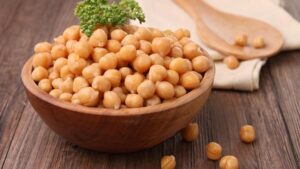The Basics Our Body Needs Carbohydrates, Proteins And Fats.

The basics, carbohydrates, proteins, and fats are all essential macronutrients that our bodies need in varying amounts. Each serves specific roles and contributes to overall health and well-being. A balanced diet that includes a variety of nutrient-dense foods is key to maintaining optimal health. Here’s why each of these macronutrients is vital:
Our bodies require carbohydrates, proteins, and fats for energy, growth, repair, and overall health. Each of these macronutrients plays a unique and vital role in maintaining bodily functions.
Carbohydrates
Role:
- Primary source of energy. Carbohydrates are broken down into glucose, which is used by cells for energy.
- Important for brain function, as the brain relies heavily on glucose.
- Provide dietary fiber, which aids in digestion and helps maintain healthy blood sugar levels.
Types:

Simple Carbohydrates: Found in fruits, milk, and sweeteners. They are quickly absorbed, providing rapid energy.
Complex Carbohydrates: Found in whole grains, legumes, and vegetables. They are absorbed more slowly, providing sustained energy.
Proteins
Role:
- Essential for growth, repair, and maintenance of body tissues, including muscles, skin, and organs.
- Act as enzymes and hormones, facilitating various biochemical reactions.
- Play a role in immune function, forming antibodies that fight infections.
Sources:

- Animal-based: Meat, fish, eggs, and dairy products.
- Plant-based: Beans, lentils, tofu, nuts, and seeds.
Fats
Role:
- Provide a concentrated source of energy, with more than double the calories per gram compared to carbohydrates and proteins.
- Essential for the absorption of fat-soluble vitamins (A, D, E, and K).
- Important for cell membrane structure and function.
- Insulate and protect vital organs.
Types:
Saturated Fats: Found in animal products (meat, butter, cheese) and some plant oils (coconut, palm). Typically solid at room temperature.
Unsaturated Fats: Found in vegetable oils, nuts, seeds, and fish. Usually liquid at room temperature.

- Monounsaturated Fats: Found in olive oil, avocados, and certain nuts.
- Polyunsaturated Fats: Found in sunflower oil, corn oil, and fish oil.
Trans Fats: Found in partially hydrogenated oils and some processed foods. These are industrially created fats and are associated with negative health effects.
Balancing Macronutrients
A balanced diet includes the right proportion of carbohydrates, proteins, and fats:
- Carbohydrates: 45-65% of total daily calories.
- Proteins: 10-35% of total daily calories.
- Fats: 20-35% of total daily calories.
Health Implications
Carbohydrates:
- Insufficient intake can lead to energy deficits and ketosis.
- Excessive intake, especially of simple carbs, can lead to weight gain and blood sugar imbalances.
Proteins:
- Insufficient intake can impair muscle function and immune response.
- Excessive intake, especially from animal sources, can strain the kidneys and contribute to heart disease if associated with high saturated fat intake.
Fats:
- Insufficient intake can affect cell function and vitamin absorption.
- Excessive intake, especially of saturated and trans fats, can lead to cardiovascular disease.
Fats
- Energy Storage and Supply: Fats are a dense source of energy, providing 9 calories per gram. They are stored in the body and used when energy is needed.
- Cell Structure: Fats are crucial components of cell membranes, helping to maintain their integrity and functionality.
- Hormone Production: Certain fats are necessary for the production of hormones, including steroid hormones like estrogen and testosterone.
- Vitamin Absorption: Fats aid in the absorption of fat-soluble vitamins (A, D, E, and K).
- Protection and Insulation: Fat cushions and protects vital organs and insulates the body to maintain temperature.
Carbohydrates
- Function: Carbohydrates are the body’s primary source of energy, particularly for the brain and during physical activity. They are broken down into glucose, which is used to fuel cellular activities. Carbohydrates are also important for the proper function of the central nervous system, kidneys, brain, and muscles.
- Sources: Fruits, vegetables, grains, legumes, and dairy products.
- Primary Energy Source: Carbohydrates are the body’s main source of energy, especially for the brain and during high-intensity exercise.
- Storage Form (Glycogen): Excess carbohydrates are stored as glycogen in the liver and muscles for later use.
- Metabolic Primer: Carbohydrates help in the metabolism of fats. Without sufficient carbs, fat metabolism can lead to the production of ketones, which in excess can be harmful.
Proteins
- Building Blocks (Amino Acids): Proteins are made up of amino acids, which are necessary for the growth, repair, and maintenance of body tissues.
- Enzymes and Hormones: Many enzymes and hormones are proteins, which are critical for metabolic processes and regulating bodily functions.
- Immune Function: Antibodies, which help fight infections, are proteins.
- Transportation and Storage: Proteins like hemoglobin transport oxygen in the blood, and other proteins help in the storage and transport of various molecules.
Importance of Balance
While fats, carbohydrates, and proteins are all essential, it’s important to consume them in appropriate proportions to maintain optimal health. An imbalance can lead to health issues such as malnutrition, obesity, or metabolic disorders. These macronutrients are essential, the specific needs for each can vary based on factors such as age, sex, activity level, and overall health. A balanced diet that includes an appropriate amount of proteins, fats, and carbohydrates is crucial for maintaining optimal health and preventing deficiencies.
Each macronutrient plays distinct and overlapping roles that contribute to the body’s ability to function, grow, and repair itself, making them indispensable to our diet.




